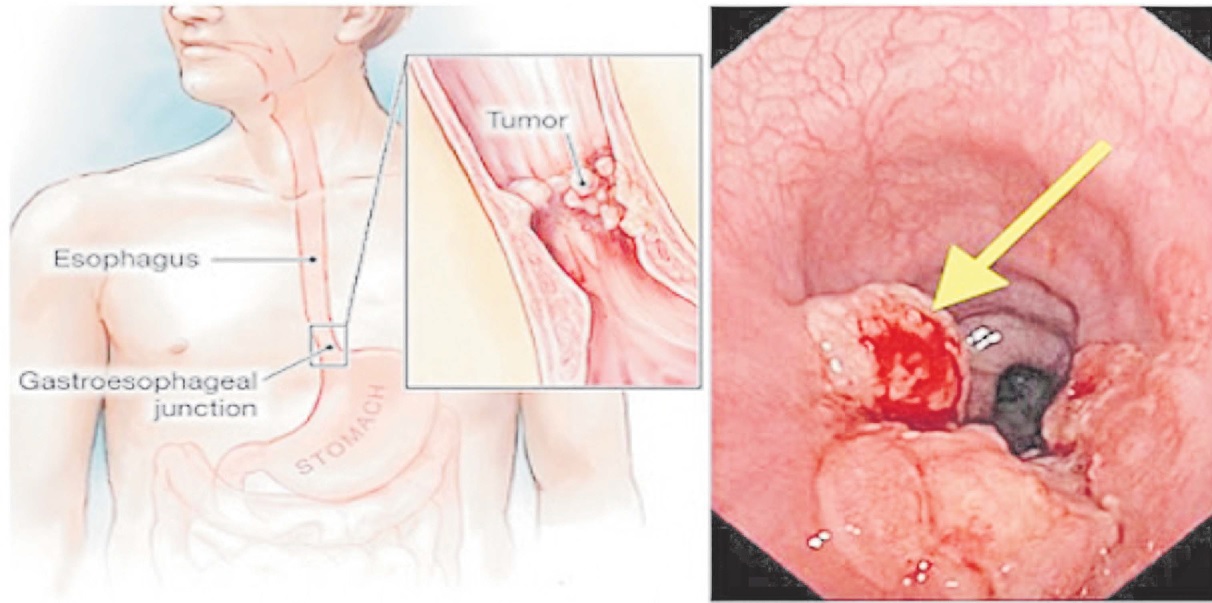GERD –— Gastro-esophageal reflux disease is associated with gastric fluid (stomach acid) into the esophagus, simply when the stomach contents flow back into and irritate the food pipe (esophagus).
GERD often leads to a burning feeling in the chest that can spread to the throat. This is called heartburn.
Reflux may also leave a bitter taste in the mouth or make it feel hard to swallow food.
GERD can usually be confused with gastritis (inflammation of the stomach lining) and even though both can occur simultaneously and their management may be similar, however, it is important that it is identified at an early stage and treated.
There are certain factors which may contribute to GERD and some of the common ones are: 1. Being overweight or obese; 2. Pregnancy – due to hormonal changes and growing fetus/baby pushing onto the stomach; 3. Delayed stomach emptying; 4. Presence of other medical conditions such as Hiatal Hernia; 5. Cigarette smoking; 6. Beverages such as alcohol and coffee; and 7. Eating large or high fat meals and processed foods. Some of the common symptoms include: 1. Heart burn; 2. Dry cough; 3. Sensitive to food and drinks; 4. Sore throat; 5. Difficulty swallowing; 6. Regurgitation – ejection of food contents from the esophagus (food pipe); 7. Bloating and gas; 8. Lump in the throat; 9. Burping or hiccups; 10. Low appetite; 11. Trouble sleeping; and 12. Vomiting.
Recommendations:
Recommendations are based on the regular diet with guidelines to decrease total fat intake, provide adequate protein, and avoid known irritants such as processed foods, alcohol, carbonated beverages, citrus fruits and juices, tomato products, and coffee (with or without caffeine) according to individual tolerances. 1. Large meals increase the likelihood of increased gastric pressure and subsequent reflux; therefore, small frequent meals are recommended; Sample Meal Distribution: Breakfast (8am) : 10am Snack : Lunch (12pm – 1pm): 3pm snack : Dinner (5 – 6pm) : Supper (8pm) 2. Keep your breakfast, lunch and dinner as light as possible – avoid large meals; 3. Eat slowly, chew your food well to make it easier to swallow and help clear food from the esophagus faster – take about 20 – 30 minutes per meal; 4. Try to not “wash down” partially chewed foods with liquids; 5. Try to relax around meal times; sit down for all meals and never grab food on the run; 6. Achieve and/or maintain healthy body weight (BMI: 18.5 – 24.9); 7. Don’t eat too close to bedtime. Allow two-three hours before bedtime to digest your food. Sit upright for at least 30 minutes — one hour after eating. If you can, try gentle walking for 15 minutes after eating; 8. Each person reacts differently to food – if you think there are certain foods which trigger symptoms – avoid it!; 9. Avoid tight clothing or tight fitting belts; 10. Limit bending and lifting activities after eating; 11. Avoid smoking, drinking alcohol, fizzy beverages, kava; 12. Exercise Regularly – sit less move more; 13. Drink at least 2.4L of water throughout the day (avoid drinking a large amount of water at one point in time); and 14. Manage stress & have at least eight hours of sleep daily. Try and keep your head and shoulders propped up in bed.
Food to avoid and foods allowed in GERD:
Beverages:
- Avoid: whole milk, chocolate milk, chocolate shakes and products; citrus drinks/ juices, carbonated beverages – Coke, Fanta Etc., mint tea and coffee, vegetable juice, alcohol; and
- Allowed: Skim/ low fat milk, Decaffeinated non-mint tea (very light), Low fat yoghurt.
Breads, cereals and rice:
- Avoid: Cakes and pies, muffins and doughnuts
- Allowed: Plain white or whole grain bread, cereals and crackers, pancakes, plain roti without oil/ghee, rice – starch
strained, boiled root crops.
Meats and meat substitutes:
- Avoid: Fried meat, processed meats — luncheon, sausages and patties, fried beans, fried eggs, gravies, bacon, meat drippings, butter, margarine, vegetable oils, heavy cream and sour cream; and
- Allowed: Lean meat only — with skin removed, fish, chicken, tofu, low fat yoghurt and low fat cheese, eggs – white only.
Vegetables
- Avoid: Fried or cream style vegetables, tomatoes, French fries, potato chips, sauces – soya sauce/ tomato etc; and
- Allowed: Plain fresh vegetables prepared without any fat dressings (for moderate to severe cases – blanch vegetables and eat it soft – chew well). Baked, boiled and mashed potatoes without mayonnaise or added fat.
Fruits
- Avoid: Orange, lemon, tangerine, pineapple, grapefruit, and citrus fruits; and
- Allowed: Other than the above, as tolerated – small amounts.
Miscellaneous
- Avoid: butter, coconut, chocolate, cream candies, herbs and spices, sauces, vinegar, chilies; and
- Allowed: Honey, Jelly, cold low fat yoghurt
- Vishal Prasad is a clinical dietician at Oceania Hospitals Pte Ltd. The views expressed are the author’s and not necessarily reflect the views of this newspaper.




